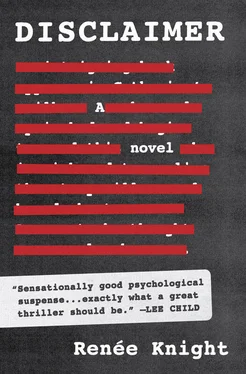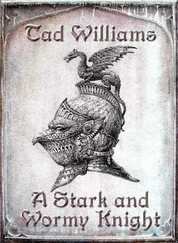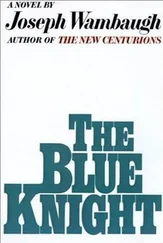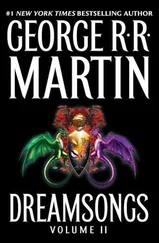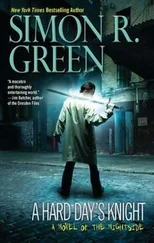He shrugs again. “Bit nerdy.”
“What, all of them?”
He shrugs again.
“Oh dear.” Catherine makes an effort to sound as if she is giving Nicholas the benefit of the doubt but she imagines his flatmates are bright, engaged, focused. They probably read, and that’s what will make them nerdy in his eyes.
“They’re all students,” he says.
“You’re still enjoying work though?” She struggles to cover the awkwardness between them.
“It’s fine.” He shrugs. “You know.” She doesn’t know. How can she know if he doesn’t tell her? Nicholas is working in the electrical department at John Lewis — it’s not quite what she and Robert had imagined for their son, but as he’d left school at sixteen with a handful of GCSEs it now seems a godsend. There was a time when they were unable to imagine him ever being able to commit to any kind of job. She remembers how hurt she had been by the phone calls from other mothers, even close friends, who couldn’t wait to tell her about their children’s results, asking the cursory question about Nicholas but knowing damn well he’d be lucky to come away with any passes. It was a long time ago, but she’s never quite forgiven them. It wasn’t sisterly — it was cruel. Anyway, Nicholas has stuck it out at John Lewis, so there must be something he likes about it.
“I’ll take this with me,” he says, and pulls out a mobile. Aeroplanes. Delicately made from balsa wood and paper, wings a little torn, strings tangled.
“And Sandy?” He shakes his head at the balding dog Catherine holds in her hand. Her turn to be hurt now. She is trying to coax him back to boyhood memories: to the time when he couldn’t sleep without his cheek resting on Sandy; when he couldn’t sleep without her tucking him in. It’s so bloody complicated. She wants him to be a grown-up but she also wants him to remember how much he loved her once. How much he needed her. But she is nervous too that he still needs her more than is good for him and it makes her tougher and it makes her relieved, in the end, that he is leaving Sandy behind. She stops at the door and turns to him.
“You do understand, Nick, don’t you?”
He has hooked the mobile on the corner of a shelf, and is trying to untangle the strings.
“What?”
“About us moving. You know. We just didn’t need such a big place anymore.”
He doesn’t answer, and she knows she should resist pushing it but she can’t.
“Don’t you want to be independent? We’re here if you’re ever in real trouble, but it’s time, Nick. Isn’t it?”
He shrugs.
“If that’s what you want to tell yourself, Mum.”
“The match is about to start,” Robert calls from the sitting room and Nicholas brushes past her to join his father, leaving her with the sting of his words.
Catherine returns to the kitchen and pours the rest of the bottle into her glass and slides open the door on to the terrace. She lights a cigarette, alternating between dragging on it and slugging wine from her glass. She thinks it calms her down, but it doesn’t. It jangles her nerves. Makes her twitchy. She wants to punish herself. The cigarette is part of that, a slow self-destruction, and the book is another. She goes back into the kitchen and takes it out from under the Sunday papers, where she had buried it earlier, and opens the first page. No, there’s not a hint here of what is to come. It is gentle. Soft. She flicks ahead to the part she knows will hurt her. She is lost in it, sinking beneath its weight. Its injustice. Her eyes close, the words washing over her, to the sound of a roar from the TV. A goal. Then silence.
She must have fallen asleep. She doesn’t know for how long. It’s getting dark outside. She is groggy. The TV has been turned off and she hears whispering in the hallway, by the front door. Then footsteps coming into the kitchen.
“I’m off now.” Nicholas raises his hand in good-bye and then comes towards her. He’s going to kiss her, and she leans forward, standing up to meet him halfway. His lips brush past her ear. “Oh, I’ve read that.” Her heart stops. Her throat closes. “I enjoyed it.” Sweat pricks her top lip.
Robert smiles. “Your mum’s struggling with it.”
“Really? Not like you, Mum.” She feels the book leaving her hand and moving into her son’s. He misreads her face. “Yes, I did finish it. I do read, you know.”
“No, no, I didn’t… Is this your copy then? Did you send it to me?”
“No.”
“But maybe you left it here?”
“No. I didn’t. Mine’s in the flat.”
“How come you’ve read it?”
“Catherine.” Robert thinks she’s being unnecessarily provocative.
“No, no, I just meant it’s a weird coincidence. It was sent to me when we moved and I’m not sure who…”
“Well, mine was a present.”
“A present? Who from?” she cracks.
He looks at her, surprised, shrugging. “A grateful customer. Someone I helped, I think. I can’t remember — they left it at the till with my name on it. No big deal.”
“But who was it?” she asks again.
“I don’t know, Mum. I told you. What’s the problem? Why does it matter?”
She turns away, frightened of what he might read in her face, and mumbles her reply: “It doesn’t. No, it’s fine,” but then she can’t let go. “So, you liked it?” she says.
“Yeah, I did. Don’t want to spoil it for you though.”
She waits. “It’s okay, I probably won’t finish it.”
“Well, I’ll see you. I’ll call you during the week,” and he makes his way to the front door with Robert at his heels. She follows them.
“So what happens?” She is desperate. “I probably won’t finish it,” she repeats. He opens the front door and turns round.
“She dies. Sticky end. She deserves it though.” And then he hugs his father and with a grin wiggles his fingers in farewell to his mother.
10. EIGHTEEN MONTHS EARLIER
The words in Nancy’s manuscript did not break me. They made my heart race, they stirred me up, but they did not break me. When I’d read A Special Kind of Friend , written by the young Nancy, I had heard her voice so clearly and it had made me weep. Now, with this later work, her last work, I heard her just as clearly, but as the mature woman I had been married to for over forty years. As the woman I had cared for when she was dying: washed, read to, fed, comforted as best I could. I had not expected to find this woman in print, but there she was. I had given up on writing but she had not. And, after spending time with her book, after reading it over and over, her words, which at first had unsettled me, gradually settled down within me, finding little nooks and crannies where they made themselves comfortable, until I trusted them, and they trusted me.
I came to understand that Nancy wanted me to find her manuscript, just as she had wanted me to find the photographs. She had hidden them in places where she knew, eventually, I would come across them. She could have destroyed them, but she chose not to. She was waiting until I was ready and I hadn’t been ready during her lifetime. I needed time with them on my own. Nancy’s manuscript churned me up, shook me about and sparked some life back into me. It reminded me of something Nancy and I had always agreed on: fiction is the best way to clear one’s head.
It had been such a long time since I had put words down on paper and this was the first time I had done it without Nancy being there — she has always been my motivation. Doubts I’d had in the past, questions I’d tormented myself with, vanished because I knew why this book had to be written and I was in no doubt who it was for.
I turned my desk towards the window so I looked out on to the house opposite and could see the comings and goings of the young family who lived there. Off to school in the morning, mum coming back in the afternoon with the children. Their day was a useful shape for me, it reflected the shape I’d had all those years ago when Nancy would leave for school with Jonathan and then return with him at teatime, and I would finish my last sentence of the day.
Читать дальше
